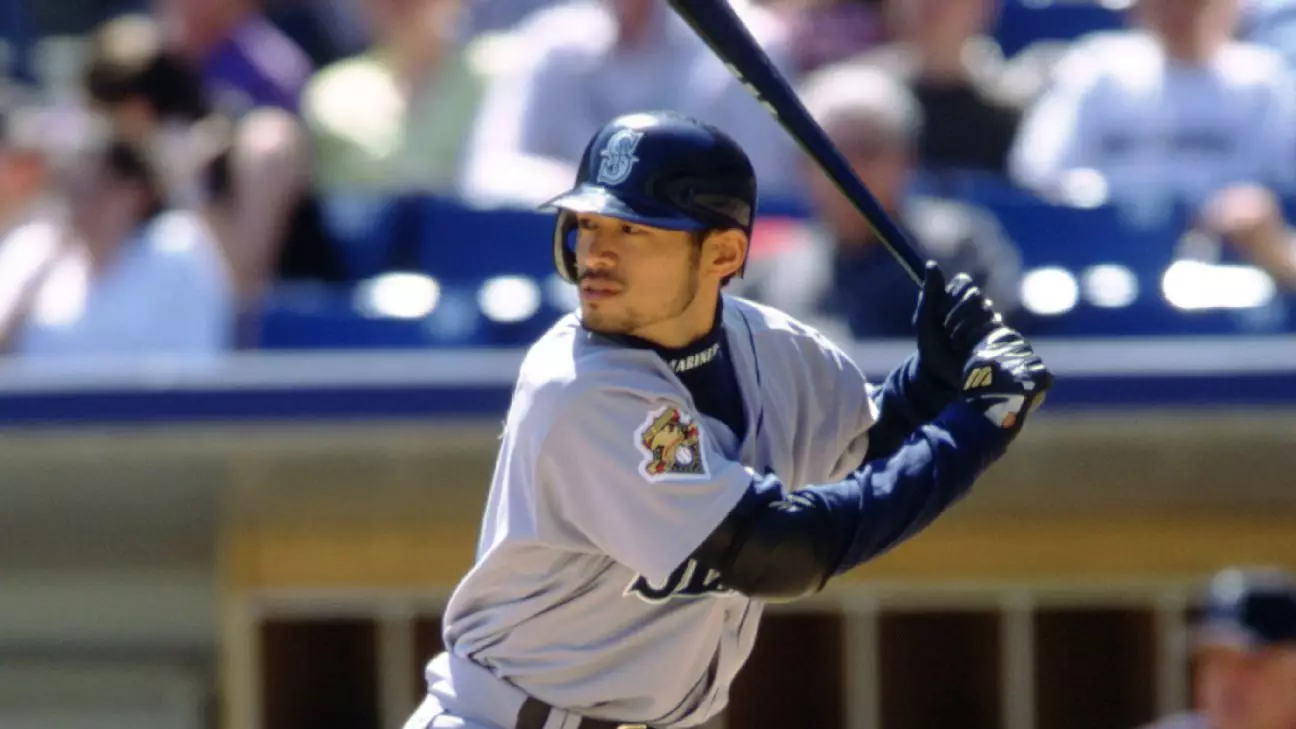The anticipation surrounding the annual announcement of the Major League Baseball Hall of Fame ballot is palpable, particularly as it unveils a new class of candidates vying for immortality in Cooperstown, New York. The recent release has introduced 14 fresh names, headlined by the remarkable outfielder Ichiro Suzuki and the formidable pitcher CC Sabathia. These newcomers join a list of 14 returning contenders, creating an intriguing mix of past legends and prospective Hall of Famers. This year’s ballot not only tracks the trajectory of some of baseball’s finest but also highlights the ongoing debate over player legacies and achievements in an era fraught with scrutiny.
Notable Newcomers and Their Achievements
Ichiro Suzuki’s reputation precedes him. Making history in 2001, he became only the second player to win the American League Rookie of the Year and MVP in the same season, a feat solidified by his exceptional performance. During his illustrious career spent primarily with the Seattle Mariners, Suzuki secured two AL batting titles and garnered 10 Gold Glove Awards, amassing remarkable statistics—including a staggering 262 hits in a single season. His ability to combine contact hitting with speed, illustrated by 509 stolen bases, cements his legacy as one of the game’s all-time greats.
CC Sabathia, another pivotal figure, brings his own impressive resume, evidenced by his six All-Star selections and a coveted AL Cy Young Award in 2007. Playing a significant role in the New York Yankees’ 2009 World Series victory, Sabathia’s 3,093 strikeouts place him third amongst left-handed pitchers in MLB history. His tenure with the Yankees, alongside stops in Cleveland and Milwaukee, showcases his durability and talent over a career spanning nearly two decades.
Other prominent newcomers include Félix Hernández, a pitcher known for his perfect game in 2012, and Carlos González, an outfielder whose athletic prowess earned him three Gold Glove Awards across his productive career. The roster of new candidates also features notable names like Dustin Pedroia, Hanley Ramírez, Fernando Rodney, and Ian Kinsler, each contributing unique strengths to their teams and leaving indelible marks on the sport.
Among the 14 candidates returning from previous ballots, few have garnered as much attention as Billy Wagner, who received 284 votes, slightly falling short of the required 75% for enshrinement last voting cycle. As he enters his 10th and final opportunity on the ballot, the debate around his Hall of Fame worthiness intensifies, especially in light of the ongoing conversations regarding the merits of closers in baseball’s history.
The holdover list also invites scrutiny towards steroids-tainted superstars, including Alex Rodriguez and Manny Ramirez, who are faced with mixed opinions over their contributions versus their controversies. Their performance statistics are undeniably impressive, but the implications of their choices continue to cloud discussions about their legacies.
Additionally, players like Andruw Jones and Carlos Beltrán present compelling cases for induction, demonstrating strong all-around performance during their respective careers. As the baseball community weighs the merits of these returning candidates, the broader issue of how the Hall of Fame’s image and standards are evolving becomes a critical area of focus.
Candidates must navigate a meticulous evaluation process undertaken by members of the Baseball Writers’ Association of America (BBWAA). Only BBWAA members with 10 or more years of consecutive membership can cast ballots, rendering the voting process both exclusive and reflective of seasoned perspective. The timing of the ballot is also crucial, with results set to be unveiled on January 23—a date circled in red on the calendars of fans and players alike.
For players fortunate enough to surpass the 75% threshold, induction day on July 27 will be a culmination of years of dedication, skill, and often, personal sacrifice. Joining those elected via the regular ballot are players considered by the Hall’s classic baseball committee, tasked with evaluating contributions made prior to 1980, thereby ensuring that a wide array of baseball history is honored.
As the baseball community prepares for the upcoming 2024 Hall of Fame induction, the ballot serves as a microcosm of broader discussions surrounding performance, legacy, and the evolving standards of what it means to be a Hall of Famer. The influx of talented newcomers and the return of esteemed holdovers ensures that debates will not only persist but proliferate in the coming years. Whichever players earn the distinction of Hall of Famer, each contributes uniquely to the storied narrative of Major League Baseball, symbolizing the sport’s rich history and passion for excellence. As fans await the results, the spirit of the game continues to captivate, bridging generations of players, legends, and aspiring athletes alike.

